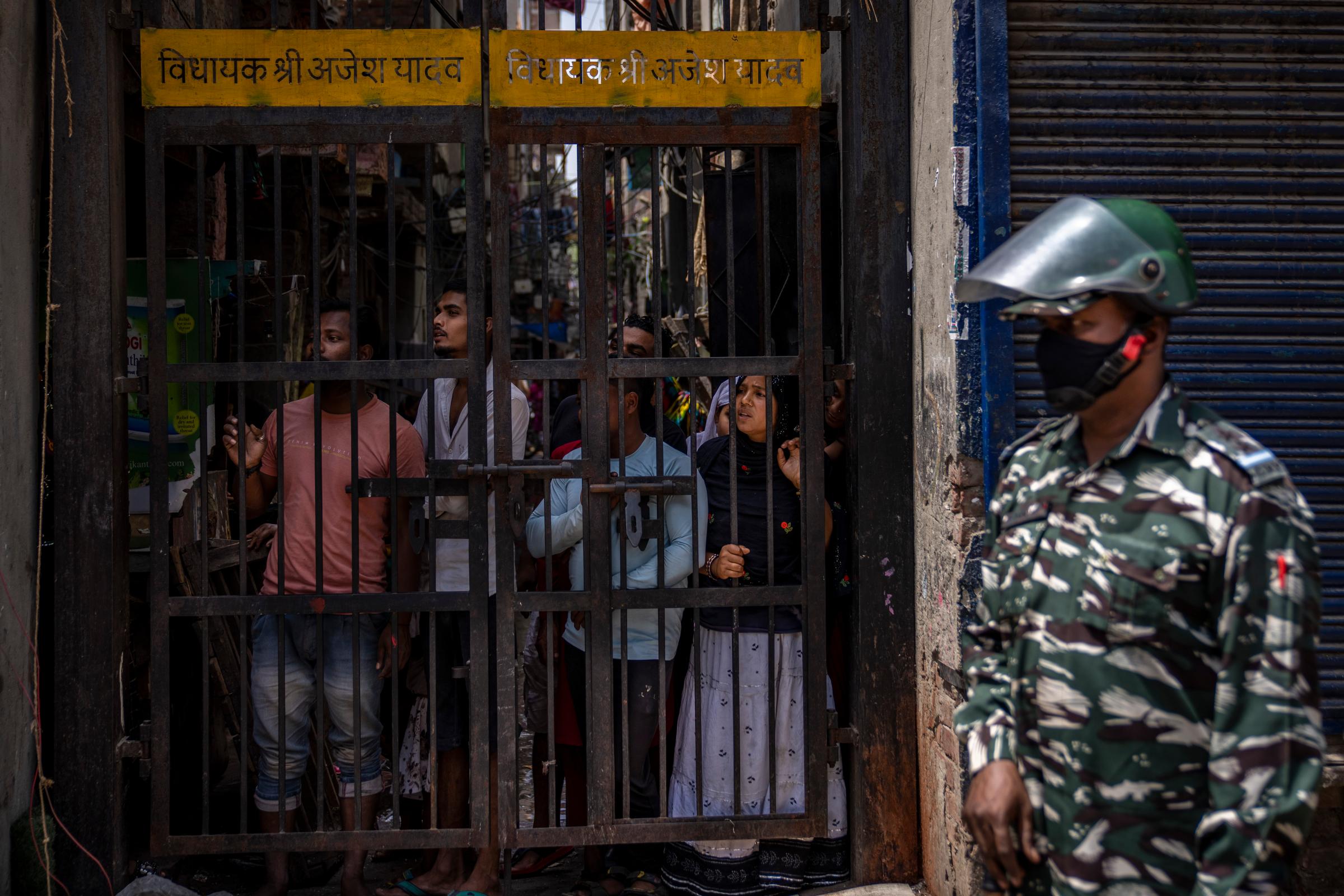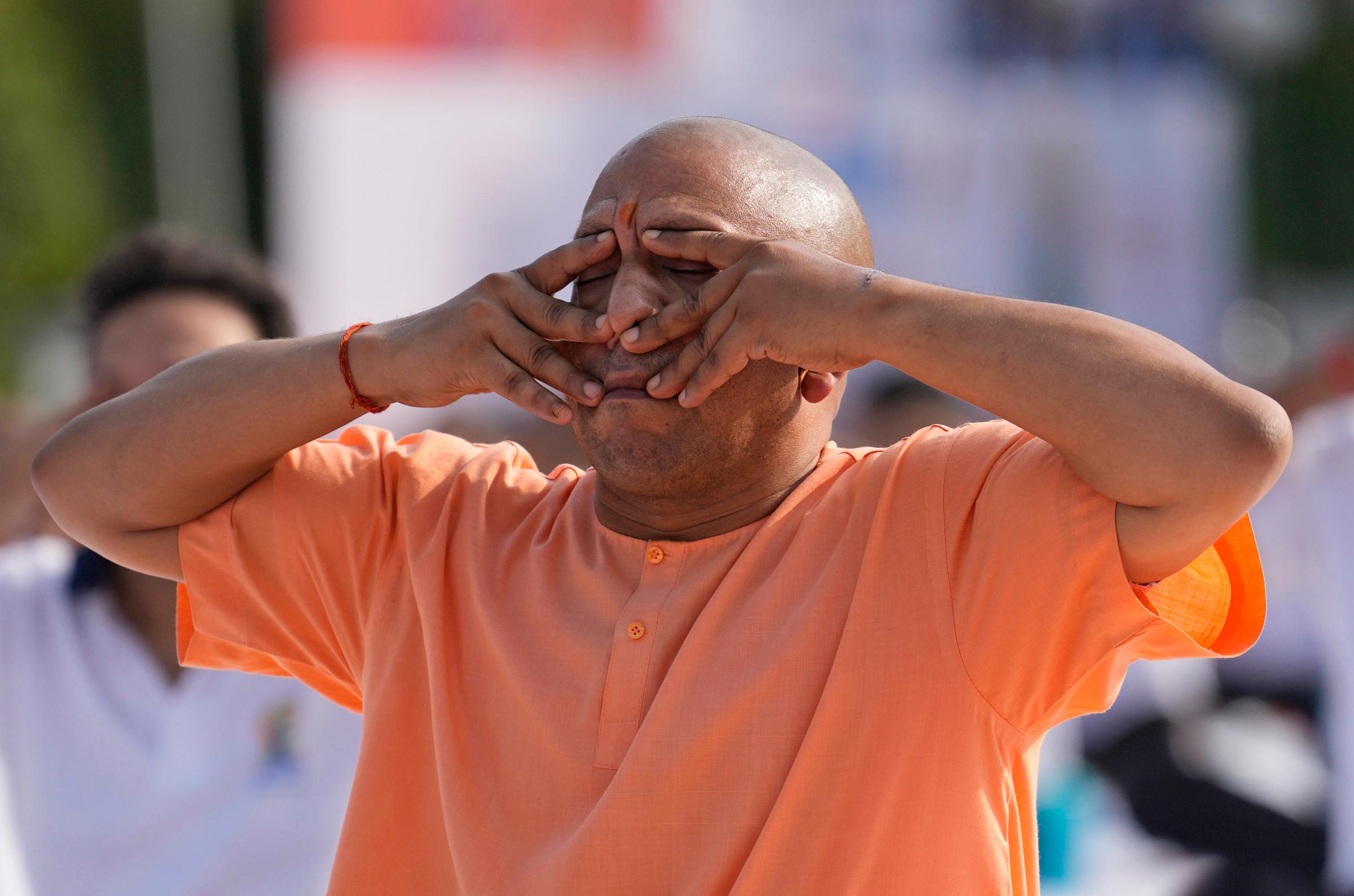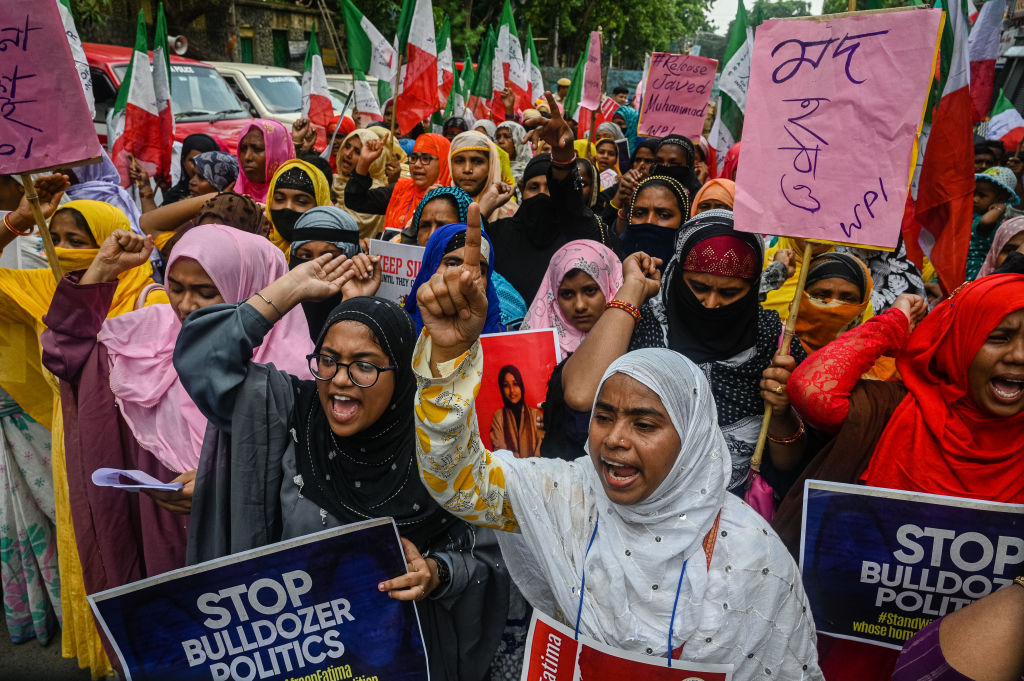Ever wondered what is it like to be a Muslim in the undeclared Hindu state that is India? To be constantly humiliated, demeaned, and brutalized? To have your soul destroyed by the state? And sometimes, your home, too?
From our faith and history to our eating habits and clothes, the Hindu supremacists ruling India today have spared nothing in their campaign against our community. During the eight years of Narendra Modi’s government, they have taken a sledgehammer to our country’s secular foundations by routinely finding ever newer ways of targeting us. Last month they brought a bulldozer to my home.
In late May, a national spokeswoman of Modi’s ruling Bhartiya Janata Party (BJP) made derogatory remarks about the Prophet Muhammad on live TV. Muslims in India, and far beyond, were outraged. Shortly afterward, on June 10, Muslims in some parts of India held protests after Friday prayers. One such protest was held in my city, Prayagraj (erstwhile Allahabad), snowballing into violence. A swift police crackdown followed, leading to arbitrary arrests and detentions of Muslims across the city.
Read more: Is India Headed for an Anti-Muslim Genocide? A Muslim Student Activist Has a Message for the World
My family found itself at the receiving end of brutal state power with the arbitrary and illegal detention of my father, a community leader and rights activist. Police picked up my mother and sister from our home in the middle of the night without an arrest warrant and made them sit at a police station for more than 35 hours, in violation of all rules of detention.
The city authorities and police then forced the family out of the house—by threatening my mother and sister with torture and formal charges if we didn’t—and slapped a backdated notice on our gate on the night of June 11, claiming the building was an illegal construction and would be demolished the next day. The house was suddenly labelled “illegal” even after we have always paid all relevant taxes and have all our property documents in order. The trigger for this government action was ostensibly a complaint by three “respected people” of the neighborhood, who, incidentally, none of the neighbors can identify.

Our home thus became part of the now-familiar pattern of what has come to be known as “bulldozer justice” in India. This is how it works: the government links Muslims to grievous “crimes” such as participating in protests, then blames them for violence, and destroy their homes. Earlier this year, during a Hindu festival, sword-wielding Hindu militants marched into Muslim neighborhoods in many cities, sometimes belting out obscenities over loudspeakers in front of mosques during the Ramadan, before launching targeted attacks on Muslim homes and businesses. Then too, police blamed Muslims for the unrest, arrested hundreds of innocent Muslims, including minors, and razed their houses with bulldozers. There’s, of course, no legal provision for such demolition of private property, even if individuals are indeed found to have been involved in violent acts. But it doesn’t matter; the whole idea is to demonstrate that Muslims have no legal protection in a Hindu state. We are not equal citizens.
My father has been in jail—and on TV—ever since our own home was demolished. Our faces plastered on prime-time debates, anchors have been spinning stories about our life and activism, peddling conspiracy theories, calling us “anti-nationals” and “jihadis”. I have been receiving death and rape threats. Now that everybody knows what I look like, I’m afraid of stepping out in public. I live like a prisoner.
Read more: What It Feels Like to Be a Muslim Woman Auctioned Online by India’s Right Wing
There’s no arrest warrant against me; there’s no need for those things anymore. Most of my fellow Muslim student activists who are in jail were arrested without any due procedure or paperwork. Sometimes when they go missing, their parents don’t even know whether they have been arrested or kidnapped by Hindu extremists—the line between the two is blurring quickly, anyway. I have imprisoned myself because as a young Muslim woman in India—where ultra-right Hindus auction us online—I have to ensure my own and my family’s safety, online and offline, mental and physical. This is what freedom for me looks like in the “world’s largest democracy”. And, I am forced to live like this for no apparent reason other than being a Muslim. Worse, an outspoken Muslim.
India’s descent into lawlessness
How did India get here? How did I? How did my family find itself in the vortex of India’s rapid descent into this lawless pit of majoritarianism?
I had a fairly middle-class upbringing. My father, my Abbu, was a businessman and an activist. Despite their limited budget, Abbu and Ammi, my mother, sent me and my four siblings to the best school in the city and raised us as fiercely independent, god-fearing, socially responsible and civic-minded citizens. They shouldn’t have. Those are not the qualities Hindu supremacists appreciate in a people who they believe are not worthy of the equal citizenship guaranteed by our inclusive constitution. We are not meant to assert our religious identity. We are called “radical”, or “jihadi”, if we do. We are not meant to be seen or heard, because for them, our very existence is a crime.
In 2017, when I was studying at the Aligarh Muslim University, Ajay Singh Bisht became the chief minister of Uttar Pradesh, the northern Indian state I belong to. It is India’s biggest and the most politically important state, with a population of nearly 245 million—more than Brazil’s—with Muslims accounting for a fifth of it. A monastic head who represents the more radical wing of Hindu supremacism, Bisht (commonly known by his monastic name of Yogi Adityanath) is notorious for his hate speech and policies against Muslims.

As Bisht rose to power, my life was about to change. The social climate in the state began to worsen as extremist Hindu politics picked up pace. Marginalized in politics, Muslims began to be obliterated culturally. Muslim-sounding place names began to be changed. The name of my city was changed from the Mughal-era Allahabad to Prayagraj.
I became more conscious about the existential threat our community now faced and wanted to stand up to this injustice. I contested the students’ union election and was elected president, using the platform to speak out against Bisht’s hate-mongering and the rising threat to Muslims all over India. The ugly right-wing retaliation I faced only made me more determined to push back. As a student leader, I was called a “free-thinking”, “modern” Muslim woman taking on patriarchy. But everyone chose to ignore the identity I was really trying to assert the most: that of an Indian Muslim. I started wearing the hijab to assert my presence as a Muslim woman in spaces where I felt unwelcome or that stereotyped everything I represented.
Read more: How Long Will Joe Biden Pretend Narendra Modi’s India Is a Democratic Ally?
My activism led me headlong into the nationwide protests that broke out in 2019 against a new citizenship law that discriminates against Muslims. Like many Muslim student leaders, I faced a media trial from the shamelessly biased television channels that are the prime vectors of hate in India. They misrepresented my speeches and branded me a secessionist.
Many of my friends were arrested and Muslims were killed in orchestrated and state-sponsored pogroms in the national capital to stop the protests. In responding with violence to a non-violent civil rights protest by Muslims, the state had a clear message for us: even a mere exercise of constitutional rights is overstepping our boundaries; Muslims have no rights.
As the pandemic hit, the protests were called off. Our (now-demolished) home became a food distribution center, where we handed out monthly rations to people who would have otherwise starved during the Covid lockdown in 2020. Those in the business of distributing hate were equally hard at work: now blaming Muslims for the spread of the virus in India. The government made the community a scapegoat to escape accountability, because hate against us trumps all rationality.
Read more: For India’s Muslims, Eid al-Fitr Brings Little to Celebrate
And so, it has been: every passing week a new frontier of attack on Muslims, a new trick in the Hindu supremacist playbook, new outrage, new fears. Ramadan this year thus felt like a blissfully familiar break from the toxicity slowly consuming the community, but it was too good to last. The violent Hindu processions started, leading to more violence, crackdowns and arbitrary demolitions of Muslim homes and establishments. Sometimes Abbu had trouble sleeping, feeling helpless against the rising tide of hate. He continued to fight back in the way he knows best—filing petitions and complaints with the judiciary and police.

Following the ugly comments on the Prophet Muhammad by BJP spokespersons, he appealed on Facebook to constructively channel the anger and pray for the community. Protests ensued anyway after the Friday prayers on June 10. More crackdowns. More demolitions. Only, this time “bulldozer justice” literally came home to us. They destroyed our home and telecast it live. Media allies of the ruling BJP gloated at this latest show of collective punishment for Muslims.
Days have passed by in a blur since – not knowing what’s happening to Abbu in police custody, preparing for the legal battle facing us despite knowing how compromised the state institutions are, and not knowing if I’ll ever have a good night’s sleep again. It has been punishing. This state of being—of having to prove innocence, of anxiety, of vulnerability, of pain—itself is the punishment. For being a Muslim in Modi’s India. Does the world know how we live? Does it care?
More Must-Reads from TIME
- Caitlin Clark Is TIME's 2024 Athlete of the Year
- Where Trump 2.0 Will Differ From 1.0
- Is Intermittent Fasting Good or Bad for You?
- The 100 Must-Read Books of 2024
- Column: If Optimism Feels Ridiculous Now, Try Hope
- The Future of Climate Action Is Trade Policy
- FX’s Say Nothing Is the Must-Watch Political Thriller of 2024
- Merle Bombardieri Is Helping People Make the Baby Decision
Contact us at letters@time.com